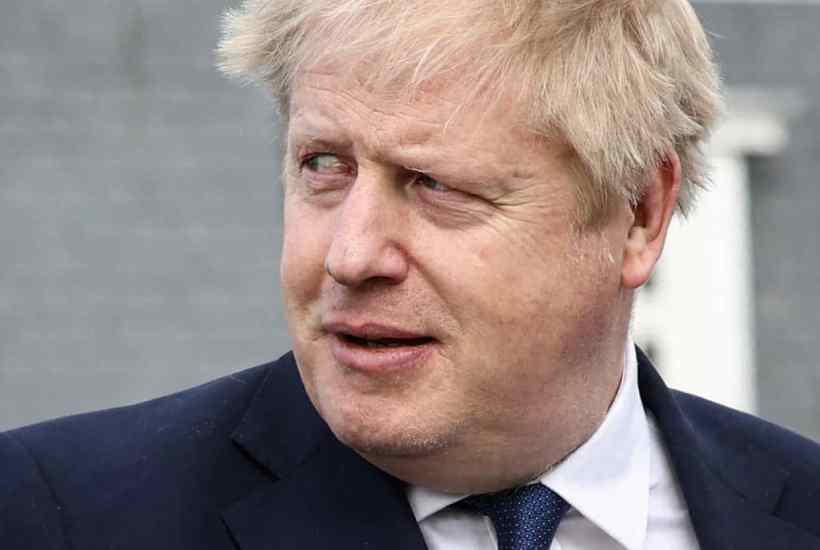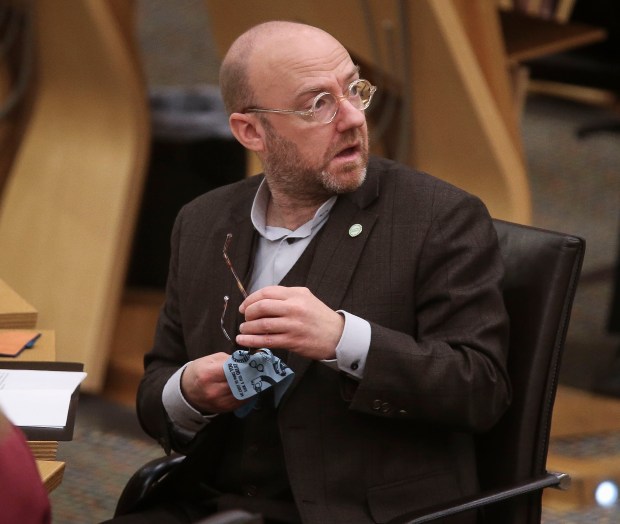What should we make of Boris’s response to war in Ukraine? The verdict from one Tory MP is already in: ‘History will look back at this as his Falklands moment,’ said Jonathan Gullis, who represents Stoke-on-Trent. But if Conservatives are hoping that conflict will transport the PM from a beleaguered position into one of national dominance – as it did for Margaret Thatcher in 1982 – they are in for a nasty surprise.
It is certainly true that Thatcher’s position did improve after her quick victory in the Atlantic to such an extent contemporaries talked of a ‘Falklands factor’ to explain it. But it is less clear how far defeating Argentinian forces was the cause of it or just coincidental. Thatcher was in trouble largely because her radical policies appeared to be making Britain’s economic crisis worse rather than better. But improvements were already noticeable before war, and they continued afterwards.
This is the very reverse of the situation Johnson now faces, especially given the imminent big rise in National Insurance and gas prices. The Ukraine war, which is likely to drag on for many months if not years, will likely make matters worse for Brits – and for Boris – given its impact on energy and wheat prices.
Thatcher, unlike Boris today, also had the great advantage of facing a divided opposition. Just before war broke out, four leading Labour party figures created the Social Democratic Party because, they claimed, their former party was lost forever to the Bennite hard left. As British forces steamed towards the Falklands and kicked out the Argentineans, Labour was split from top to bottom over an incredibly acrimonious battle for its deputy leadership. Tony Benn and former chancellor Denis Healey were at each other’s throats; eventually the latter won. But the damage was done: led by the hopeless Michael Foot, Labour’s civil war continued into the 1983 election campaign itself, while the SDP-Liberal alliance divided the anti-Conservative vote.
As for Johnson today, the PM faces a Labour party under Keir Starmer which is doing its level best to distance itself from Corbynism and is presenting a carefully controlled moderate face to voters. If you do not care for Johnson, there is no viable alternative party of government to Labour. Whatever happens in Ukraine, this is the choice for voters at the next election. Labour is no longer in the same position it was in at the last election, when Jeremy Corbyn was in charge.
But might the symbolism of leading an international response to Russian aggression do for Boris what it did for Thatcher? Again, Tory MPs like Gullis will be disappointed here. It’s true that the Falklands War undoubtedly helped Thatcher. In reality, it was a minor post-colonial conflict, yet victory in the Atlantic helped reinforce her reputation as the Iron Lady, one with Churchillian echoes, whose resolute leadership at a moment of crisis helped make Britain great again after a decade or more of drift and decline.
The invasion was also, it is fair to say, an extremely risky military operation which she forced through a sceptical Cabinet. Thatcher even tried to exploit victory for domestic political purposes, saying that having defeating the Argentinians – the enemy without – she wanted to take on militant trade unions: the ‘enemy within’.
But for Johnson, the Ukraine war can provide little helpful symbolism. For a start, his government is just one of many opposing the Russian invasion, while Britain has been behind many of them in imposing sanctions and most egregiously taking Ukrainian refugees. In this, Johnson has been some steps behind public opinion. This is not Thatcherite, let alone Churchillian, leadership. And Labour has succeeded in exploiting this lacklustre response to the full.
There is also the little matter of how far the Conservative party, and Johnson in particular, have looked after the interests of Russian oligarchs, to the extent of even putting the son of one in the House of Lords. And while Thatcher was at a low point just prior to the Falklands invasion it was as nothing to Johnson’s position thanks to party gate, which meant 75 per cent of voters considered him untrustworthy just before Putin’s invasion. Boris may well receive a modest bounce in support as a result of the crisis, but it will surely not be enough to make much of a difference in the long term: the British public have already made up their minds about him. There is no way back for Boris.
So make no mistake: talk of the Ukraine crisis providing a ‘Falklands moment’ for Johnson is simply fool’s gold for desperate Conservatives. It shows they are whistling in the dark in the face of dire poll numbers for the Prime Minister and his party. It’s time they stopped invoking a mythical version of the past to save them from looking political reality in the face.
Got something to add? Join the discussion and comment below.
Get 10 issues for just $10
Subscribe to The Spectator Australia today for the next 10 magazine issues, plus full online access, for just $10.



















Comments
Don't miss out
Join the conversation with other Spectator Australia readers. Subscribe to leave a comment.
SUBSCRIBEAlready a subscriber? Log in